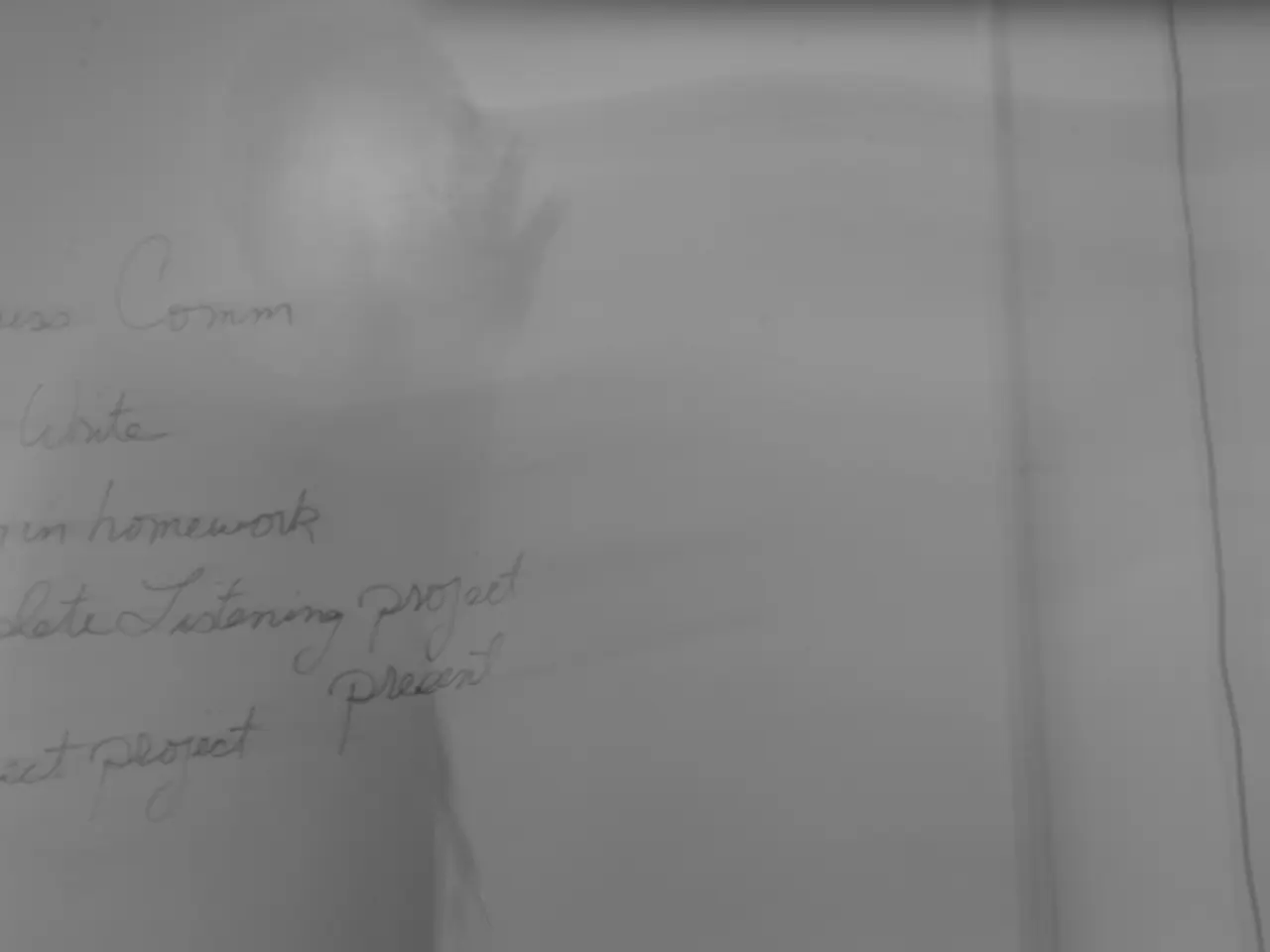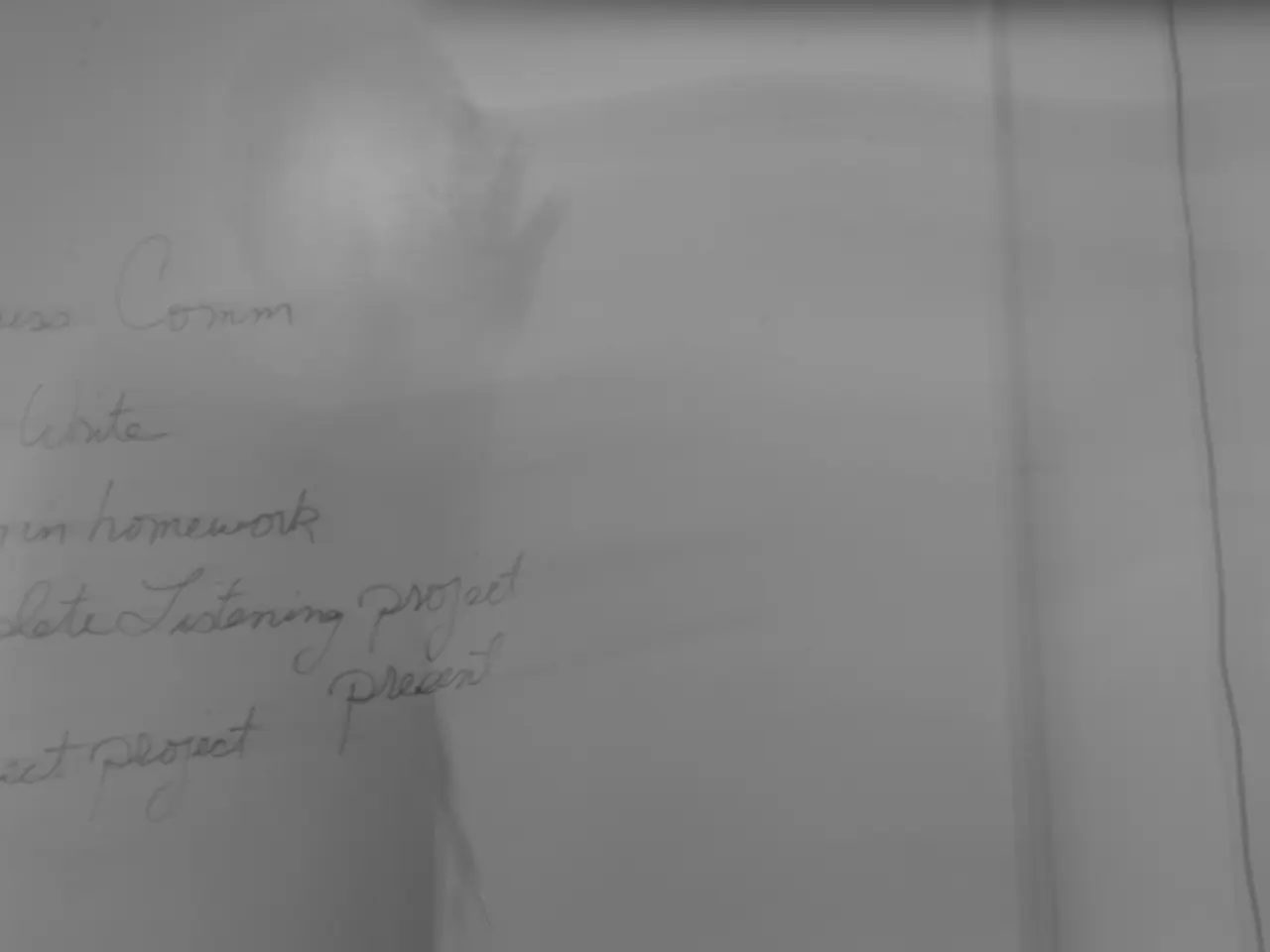Hurry Up and Make a Deal! Merz and Macron Urge Swift Zoll Agreement with Trump
Leaders Merz and Macron advocate for rapid custom agreement with Trump
The clock is ticking, with less than two weeks left before the US-EU customs agreement deadline. A new offer from the US is on the table in Brussels, currently under review. Chancellor Merz and French President Macron are pushing for a quick resolution. EU Commission President Ursula von der Leyen has stated that the EU is prepared to reach an agreement, but is also prepared for the possibility of "no satisfactory agreement being reached."
Relations are heated between the heads of state and government, who have urged von der Leyen to "reach a quick agreement, a quick understanding with the Americans, in the less than two weeks remaining," Merz stated after the summit. Macron also called for "a quick conclusion of an agreement, it should not drag on any longer." However, he added, "I don't want it at any price."
Merz had previously criticized the Commission's negotiating tactics as "too complicated." He demanded a basic agreement for the automotive, chemical, pharmaceutical, and steel sectors, and expressed concern about US protectionist tariffs.
But Merz backtracked, assuring the Commission that he had not criticized them. "I just wanted to make it clear that in the remaining time, we can't agree on a sophisticated trade agreement," he said.
Negotiations are taking place under the shadow of potential increased tariffs, with Trump threatening to double or even quintuple tariffs by July 9th. If talks fail, the EU has prepared counter-tariffs, including a list of tariffs on items such as jeans, aluminum products, and motorcycles, worth around 100 billion euros. To put this in perspective, US tariffs are estimated to affect European products worth 370 billion euros.
There's talk of an agreement modeled on the "Swiss Cheese" principle. This could involve a general US surcharge of around ten percent, maintaining exceptions for key sectors like steel and automotive industries, which are heavily affected by Trump's tariffs.
Commission President von der Leyen briefed the heads of state and government on the current status of negotiations. She stated that the EU has received the latest US document for further negotiations and is currently evaluating it.
The US is pushing a global tariff strategy, with increased tariffs on steel and aluminum imports (raised to 50% from 25% effective June 4, 2025, for most countries except the UK). Additionally, the US has threatened to expand tariffs up to 50% on all EU exports if an agreement is not reached. This represents a clear protectionist stance, particularly focused on these sectors, to shield domestic manufacturers and national security interests.
The EU has delayed retaliatory tariffs on US goods multiple times, with some tariffs set to go into effect only after July 9, reflecting a willingness to negotiate rather than escalate. Ursula von der Leyen confirmed ongoing negotiations aimed at reaching an agreement by July 9, underscoring the EU's interest in avoiding a tit-for-tat tariff war and stabilizing transatlantic trade relations.
Regarding sector-specific responses, the EU has shown particular concern about US tariffs on steel and aluminum and has maintained a firm stance on the limits of concessions it is willing to make. The EU aims to protect its automotive and chemical industries by negotiating customs procedures, tariff concessions, and possibly addressing non-tariff barriers, although precise EU counterproposals are not detailed in the search results.
In conclusion, the negotiations revolve around balancing US demands for higher tariffs and reciprocal concessions with the EU’s protection of its key industrial sectors. Both sides are under pressure to reach a deal by July 9 to avoid the significant economic consequences of tariff escalations, especially in automotive, chemical, pharmaceutical, and steel sectors. Let's hope they get their act together and strike a deal before it's too late!
The Commission is also proposing to increase the number of EU-funded projects in the field of education and training, focusing on industries such as automotive, chemical, pharmaceutical, and steel, in response to protectionist measures by the US. Finance and politics remain involved in the negotiation process, with heads of state and government exerting pressure on the Commission to reach an agreement before the deadline. General news outlets are following the unfolding events closely, highlighting the importance of a swift resolution to maintain stability in transatlantic trade relations.




